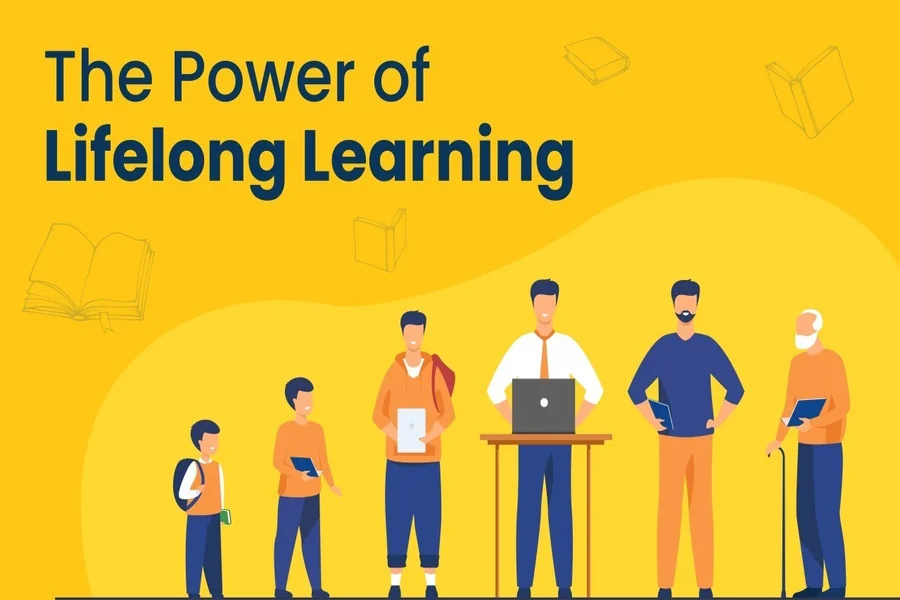In a world that never stops changing, the ability to bounce back from setbacks and adapt is more important than ever. Lifelong learning—the ongoing, voluntary pursuit of knowledge—plays a powerful role in building this kind of resilience. Whether you’re pursuing an online associate degree in information technology or simply exploring new hobbies, constantly learning helps you become more flexible, better at solving problems, and mentally stronger. Let’s unpack how lifelong learning and resilience connect in ways you might not have considered before.
Adapting to Change with Confidence
Change can be unsettling. New technologies emerge, job markets shift, and life throws unexpected challenges our way. When you engage in lifelong learning, you develop the habit of adapting to new information and environments. This adaptability is a cornerstone of resilience.
By regularly updating your skills and knowledge, you become comfortable stepping into the unknown. For example, someone earning an online associate degree in information technology is not only gaining specific skills but also practicing how to learn effectively. This practice translates into confidence when facing career transitions or personal changes.
Sharpening Problem-Solving Skills
Resilience isn’t just about enduring hard times—it’s about navigating them creatively. Lifelong learning enhances your problem-solving abilities by exposing you to diverse ideas and ways of thinking.
When you learn new subjects or tackle challenging topics, your brain builds new neural connections. This increased mental flexibility allows you to approach obstacles from different angles and find solutions faster. Whether it’s troubleshooting a technical glitch or handling a tough conversation, lifelong learners tend to think more critically and calmly.
Boosting Psychological Well-Being
Learning isn’t just a mental exercise—it also supports your emotional health. Engaging in learning activities has been shown to reduce stress, improve mood, and increase a sense of purpose.
When you dedicate time to learning, you create positive experiences that reinforce your ability to overcome difficulties. This positive cycle strengthens your overall psychological resilience. It also builds self-esteem because each new skill or piece of knowledge is a small win.
Lifelong Learning Builds Social Connections
Learning often happens in social settings—whether virtual classrooms, workshops, or discussion groups. These interactions foster supportive networks that contribute to resilience.
Having a community to share knowledge and encouragement with makes it easier to handle setbacks. The social aspect of lifelong learning creates bonds that can provide emotional and practical support during tough times.
Maintaining Cognitive Flexibility as You Age
As we get older, our brains naturally face challenges in processing new information. Lifelong learning acts as a workout for the brain, helping maintain cognitive flexibility.
This flexibility helps you adjust your thinking when faced with new situations, making it easier to adapt rather than resist change. Keeping your mind engaged reduces the risk of cognitive decline and promotes mental resilience.
Learning from Failure and Mistakes
One less obvious way lifelong learning builds resilience is by teaching you how to learn from failure. When you adopt a learner’s mindset, mistakes become opportunities for growth instead of reasons to give up.
This shift in perspective is crucial for resilience. People who embrace lifelong learning understand that setbacks are part of the process and use them to improve. This attitude keeps you moving forward even when things get tough.
Setting a Positive Example
When you commit to learning throughout life, you inspire others around you—whether family, friends, or colleagues—to do the same. This ripple effect creates environments where resilience is valued and nurtured.
By showing that growth doesn’t stop after formal education, lifelong learners help foster cultures of adaptability and continuous improvement.
How to Make Lifelong Learning a Habit
Building resilience through lifelong learning starts with small steps. Find topics that excite you, whether related to your career like an online associate degree in information technology or personal interests like cooking or art.
Set aside regular time to read, watch tutorials, or attend workshops. Use technology to your advantage—there are countless free and paid resources available online.
Remember, the goal isn’t perfection but progress. Celebrate your learning milestones and stay curious.
The Bigger Picture: Lifelong Learning as a Life Skill
Resilience is not a fixed trait; it’s a skill that can be developed, and lifelong learning is a powerful tool in that development. It equips you to handle life’s uncertainties with grace and confidence.
By continuously growing, you not only adapt to changes but also create opportunities for success and fulfillment. Lifelong learning transforms challenges into chances for growth.
Final Thoughts
The link between lifelong learning and resilience might not be obvious at first, but it’s clear once you look deeper. Learning fuels adaptability, sharpens problem-solving, supports emotional health, and builds social connections—all essential ingredients for bouncing back from life’s challenges.
Whether you’re pursuing formal education like an online associate degree in information technology or simply staying curious about the world, your commitment to learning is an investment in your resilience and well-being.
So keep learning, keep growing, and watch how your ability to thrive in any situation strengthens along the way.










